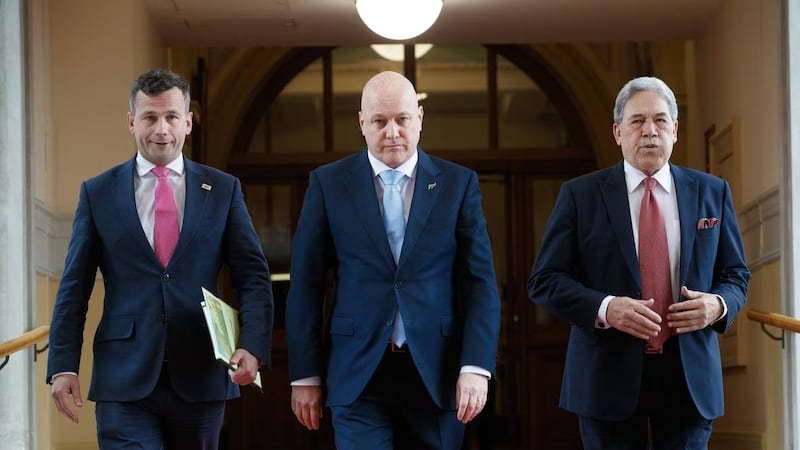Despite signals from the coalition government that this was going to be a back-to-basics budget, anticipation was high for the first right-wing budget since 2017.
What were the priorities for this new government? How was it going to simultaneously invest in core social services, reduce the deficit, meet coalition promises and still deliver tax cuts?
Surprisingly, instead of a bang, we got a fizzle, with Budget 2024 not delivering much more than what was previously signalled by the government in press releases.
Even in the ministerial briefings National struggled to point to where its fingerprints were in this budget, instead heaping praise on its partners, ACT and New Zealand First.
The biggest news of the budget was tax relief. Almost identical to their election promise, these tax cuts provide up to $250 a fortnight of tax relief for whānau with children in daycare, though for families with children, the average is approximately $78 a fortnight.
This tax relief is likely to be welcomed by the ‘squeezed middle’, and will go some way toward addressing the cost-of-living crisis. While the Treasury doesn’t currently see these tax cuts as inflationary, it will be interesting to see where the money from these tax cuts goes.
To fund these tax cuts, the government departments have been asked to make across the board savings in ‘back office’ functions and close ‘low-value’ programmes.
Environmental initiatives, research and development, and cultural competency or Te Tiriti style initiatives seem to have been the greatest targets of these cuts. There is some concern that cutting ‘back-office’ staff will just shift more of the administration burden on to frontline staff, something that is already a problem.
Despite the cuts, some government departments have received cost-pressure adjustments needed to ‘keep the lights on’.
Health gets $16 billion over four years, while education, police and Corrections also see increases. Most of this funding goes to boosting front-line staff or helping meet the increasing capital or operating costs of our struggling infrastructure and public services which, while desperately needed, likely falls a long way short of what is needed to bring these services back up to standard after decades of underinvestment.
For Māori, the kete is looking pretty empty. The Māori development initiatives announced under Labour are all being retired, with the exception of an extension at a slightly lower amount of Te Matatini funding through 2028, plus $5m per year extra for Kōhanga Reo. It was difficult to see much in this budget for us.

However, there is a $1.2 billion elephant in the room, which is New Zealand First’s new regional development fund.
This is a huge win for the party. Along with some smaller wins such as $5 million for the Kaitaia Airport upgrade, it has the potential to create genuine benefit for Māori in the regions, positive development for Māori land and the Māori economy.
Time will tell what the vision New Zealand First has for this pūtea and but there is certainly a reason to have some hope that this could be part of a step-change for Māori in the regions.
On the economy, Treasury forecasting paints a fairly gloomy picture, with the government expecting a return to surplus in around 2027.
Some of the forecasts, like the rapid fall in inflation and quite sharp increase in GDP, seem optimistic, and it’s entirely possible this gloomy picture will be with us for longer than the forecasts are currently predicting.
This becomes a problem for the coalition government as it delves into poverty reduction. There is a clear picture in the budget of a government that sees the pathway to poverty reduction being shifting people off benefits and low incomes, and into higher-paying employment.
There are likely going to be a series of ‘quality of life’ cuts for people on low incomes, as the government seeks to try to shift people into work, education or training. However, this all requires quality jobs for people to move into and there is very little in this budget that points to how these jobs are going to be created.

Overall, the coalition government has sold this budget as one that brings the government back to basics, with a focus on front line services, closing initiatives and targeted interventions in areas like Māori development and environmental protection.
Instead it argues passionately that the way forward is a focus on economic growth and addressing core issues such as educational attainment and health access.
By improving overall statistics where Māori are currently disproportionately negatively impacted, it’s argued Māori have the most to gain and this is a better way forward than specific Māori interventions and ‘by Māori, for Māori’ solutions funded under the previous government.
Celia Karl (Rongowhakaata) is a masters student at Massey University, where she is also a research assistant with Te Au Rangahau (a specialist Māori Economic Research Centre within the Massey Business School). She has a special interest in the Māori economy and Māori firm characteristics.
Matthew Roskruge (Te Atiawa, Ngāti Tama) is a Rutherford Discovery Fellow, Director of Te Au Rangahau, Massey University associate dean Māori and a School of Economics and Finance professor. He has an academic background in health and population economics, and researches broadly as an applied economist and social scientist.


